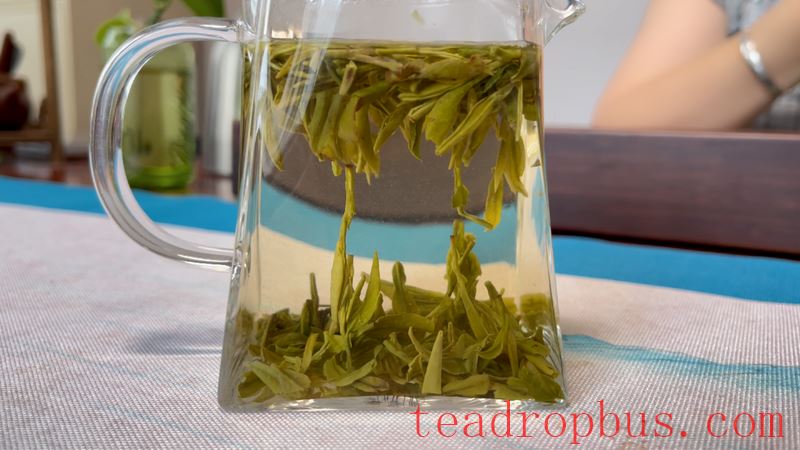Green Tea is one of the representatives of Chinese Tea culture, beloved for its unique fragrance and refreshing taste. In daily life, drinking green Tea not only allows people to enjoy the flavors of the leaves but also offers many benefits with long-term consumption. However, during tea-drinking, enthusiasts should be careful not to overindulge in strong tea. There are numerous varieties of green tea, including flat-shaped, needle-shaped, snail-shaped, sparrow-tongue shaped, and flake-shaped. Each type has its unique taste and aroma, providing different tea-tasting experiences.

How can you steep tea to make it taste better?
Green tea is a non-fermented tea that retains the most natural substances from fresh leaves, characterized primarily by its delicate freshness and fragrance. The higher the quality of green tea, the more tender and delicate the buds, resulting in a clear and bright green infusion with excellent visual appeal. Therefore, when Steeping green tea, it's best to use a transparent teacup (or pot) to highlight the green clarity of the tea. The water temperature should not be too high; 85 degrees Celsius is an appropriate temperature, ensuring that the chlorophyll in the tea is not destroyed and that the vitamin C is well-preserved. Green tea is best consumed immediately after steeping, as prolonged exposure will result in a significant loss of aroma and a gradually more bitter taste.

Is it good to drink green tea regularly?
Regular consumption of green tea is beneficial for those with excessive internal heat and abundant yang energy. From the perspective of traditional Chinese dietary therapy, green tea tends to be cool in nature, effectively balancing the body's yin and yang. It can help alleviate symptoms such as oral ulcers and redness in the eyes caused by an excess of yang. Green tea also contains rich amounts of polyphenols, which can help alleviate fatigue. The trace elements in green tea, such as manganese, chromium, magnesium, and fluoride, can strengthen bones and teeth, improving chewing and motor skills.
What are the effects of drinking green tea?
Green tea is a commonly consumed beverage in daily life, containing large amounts of vitamins, trace elements, and polyphenols.
The primary benefits and effects of green tea include: Green tea can increase nervous system excitability, having a refreshing effect on the mind. Additionally, green tea can stimulate gastric juice secretion, aiding in the consumption of fat and reducing fat accumulation, making it effective for weight loss. Green tea also has anti-cancer properties and can help prevent aging. It can improve immunity, relieve constipation, and protect cardiovascular health.

The main benefits and effects of green tea include:
1. Cooling and Heat Relief: From the perspective of traditional Chinese dietary therapy, green tea is cool in nature, making it effective for calming irritability caused by heat.
2. Moistening the Mouth and Quenching Thirst: Green tea can stimulate saliva production, helping to relieve thirst, dry mouth, and throat discomfort.
3. Antioxidant: Green tea contains rich polyphenols, which can effectively eliminate free radicals, playing a positive role in antioxidant and anti-aging functions.
4. Regulating Nervous System Metabolism: For mental workers experiencing decreased mental agility and brain fatigue, drinking green tea can have a refreshing and invigorating effect.
While there are many benefits to drinking green tea, it should be consumed in moderation, as excessive polyphenols may irritate the gastrointestinal tract, causing discomfort. It is recommended to drink no more than about three cups per day. Green tea has various benefits, such as protecting heart health, preventing cancer, and reducing stress, among others. When steeping green tea, certain techniques should be mastered, such as water temperature and steeping time, to better bring out the flavor and effects of the tea.